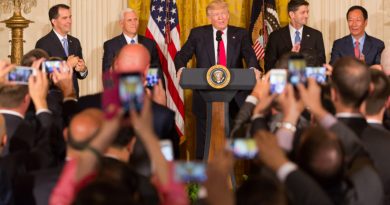BRICS Announces Expansion, Potentially Reshaping Economic System
Joshua Axton
Staff Writer
The Association of Brazil, Russia, India, China, and South Africa, an economic union of global south countries known colloquially as BRICS, has agreed to double its size in 2024 , as reported by The Council on Foreign Relations. Currently, the countries collectively contain 40 percent of the world’s population and about a quarter of the world’s GDP, according to The Associated Press. BRICS voted to invite Saudi Arabia, Iran, Ethiopia, the United Arab Emirates, Argentina, and Egypt, giving the group control over three more major oil exporters in the Middle East. The result shows BRICS representing over half the world’s population and solidifying them as a legitimate alternative to Western institutions.
The announcement of the expansion occurred at the BRICS Summit in Johannesburg, South Africa. Notably, Russian President Vladimir Putin’s attended the event virtually because of an outstanding arrest warrant by International Criminal Court (ICC) on him due to war crimes in Ukraine, according to the ICC. He pre-recorded a 17-minute speech, where he failed to mention the death of The Wagner Group mercenary leader Yevgeny Prigozhin due to a plane crash, continues the Associated Press.
At this same summit, Brazilian President Luiz Inacio Lula da Silva, presented a proposal for a unified “BRICS currency,” because it would “increases our payment options and reduces our vulnerabilities.” However,ther members of BRICS have largely rejected the idea, besides China, because of the political difficulties behind such an idea, reports Reuters. A BRICS currency would challenge the USD as the reserve currency of the world. While dollar reserves are at a 20-year-low globally, the USD still accounts for 90 percent of currency in forex transactions.
BRIC was created in 2009 and invited South Africa in 2010 (making BRICS), to form alternative global financial institutions to the International Monetary Fund (IMF), World Bank, and G7 for emerging economies. These institutions, created and largely controlled by western nations, have long been accused of excluding emerging economies. According to Al Jazeera, this can be seen through the institutions’ treatments of countries like China, which has just a 5 percent voting share in the main lending arm of the World Bank, despite controlling 16 percent of the global GDP.As a result, BRICS has created the New Development Bank (NDB) and the Contingent Reserves Arrangement (CRA). The NDB has equal voting rights among all members, who contributed for a combined $50 billion, and the CRA contains $100 billion for liquidity crises, The Council on Foreign Relations continues. The economic center of the world was in the Atlantic Ocean in the 1980s, but experts predict it will lay somewhere between China and India by 2050, according to Al Jazeera.
An opinion piece by Al Jazeera asserts that the economic threat to the West should be “a warning, but not a ‘new Cold War.” This is because the members of BRICS lack the same unifying principles of the G7. They have different ideologies, economic management systems, and strategic goals beyond having more representation in global financial institutions. Similarly, an opinion in Foreign Policy argues that India and China have competing territorial claims in the Kashmir region, and frequently have small clashes over this territory. India and Brazil both have interests against inviting new members and diluting their influence within BRICS, since the incentive to join BRICS is easier access to Chinese markets, making a China-centric organization.
The expansion of BRICS with inclusion of Saudi Arabia, Iran, Ethiopia, the United Arab Emirates, Argentina and Egypt, presents a viable rival economic association to the West, signaling a potential shift in economic power. If the association can balance internal competing interests, they will undoubtedly continue to shape the course of global economics in the coming years.


